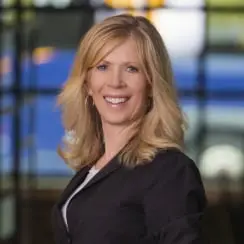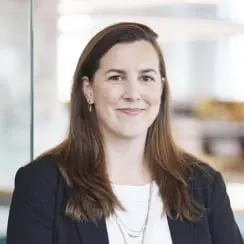 | 1 LU / HSW |
 | 1 LU / HSW |
Room: D135-136
Audience: Educators, Facilities Personnel, Architects
Call to Action: Attendees will leave this session with evidence to inform community conversations centering on the importance of student thriving and how CTE and Project based learning environments could benefit and from and reinforce protective factors for thriving.
Abstract: Today’s students need to be equipped with the skills, growth mindset, and tools to thrive in a rapidly changing world. Career Technical Education (CTE) spaces offer today’s student a space to develop real-world skills to prepare them for the workforce of the future. Develop an understanding of how curiosity enhances learning and how CTE spaces can support the range of skills and pedagogical values needed to flourish. Hear from student and educator experiences and case studies of an array of CTE spaces. Learn how spatial design strategies can support applied and tactile learning, curiosity, creative problem solving, human connection, collaboration, and skill development. An open dialogue is welcome at the end of the presentation for speakers and audience to learn from each other on CTE design best practices and implementation in the community.
Learning Objectives:

Adele joined Hord Coplan Macht in 1984 and leads the office’s practice for K-12 schools and during her 35+ years of experience, has worked with all levels of public schools throughout the state related to programming, master planning, and design of their facilities. She is passionate about designing high performing beautiful schools that meet the needs of 21st Century learners.

As an architect and research leader, Valerie’s experience spans all design phases for both PK-12 and Higher Education projects. Her work focuses on placemaking and setting the stage for emergent learning and lifelong wellbeing. Co-author of peer reviewed research on how environments impact human outcomes, she serves as Research Co-Chair of the AIA CAE. Former Stanford d.School University Innovation Fellow, adjunct faculty, member UMD’s Academy for Innovation and Entrepreneurship. B.A. Brown University. M.Arch University of Maryland.
Educational Visioning
Exhibits an understanding of best and next practices related to educational leadership, programming, teaching, learning, planning and facility design. Establishes credibility with educators, community members and design professionals while conceiving and leading a community-based visioning process. Demonstrates the ability to articulate the impact of learning environments on teaching and learning and uses that ability to facilitate a dialogue that uncovers the unique needs and long-range goals of an educational institution and its stakeholders – translating that into an actionable written/graphic program of requirements for the design practitioner.